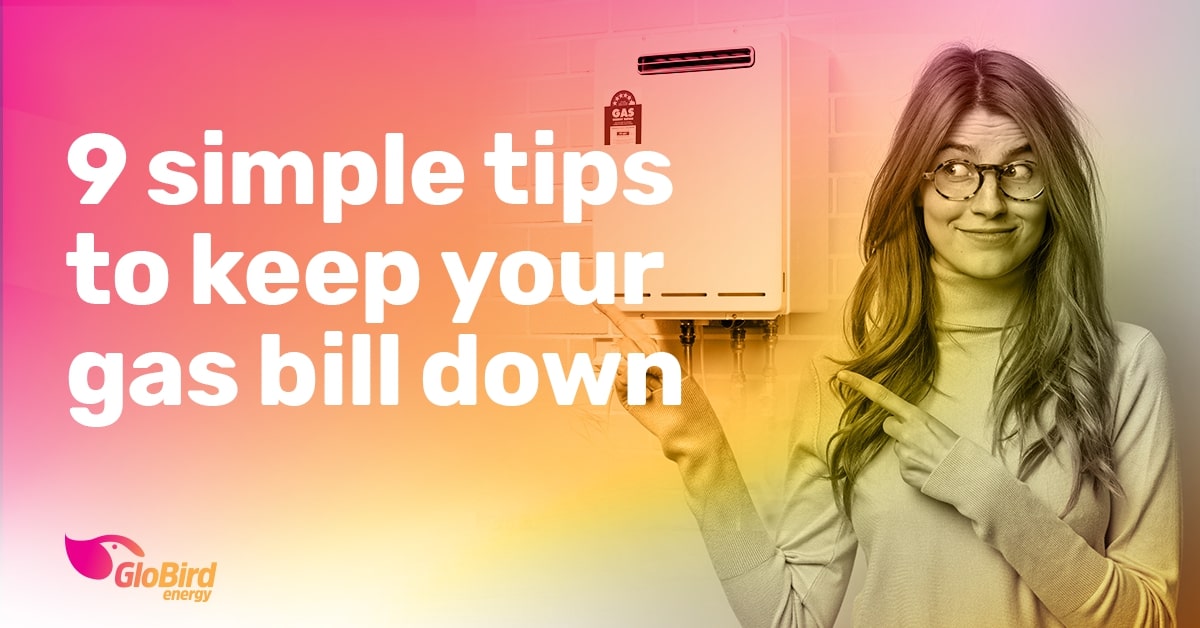For those of us who use gas, winter is a time when we usually see our bills go up. That’s because gas is most often used for heating and hot water systems.
Particularly in the colder southern states of Australia, heating can account for as much as a third of your total energy bill in winter.
The more gas appliances you use, the more likely that your gas bills will rise when you are using those things the most.
So here are a few things you can look at to help you reduce your gas usage and get your gas bills down.
1. Change your hot water system
There are two main types of gas hot water systems: storage and instantaneous (also known as continuous flow). Gas storage systems keep water heated in an insulated storage tank, while instantaneous systems heat water only as it’s needed. Storage systems are particularly inefficient, especially in cold climates, mainly because it’s not possible to insulate at the point where the gas flame is heating the tank. So, it’s worth considering switching from storage to instantaneous.
2. Insulate against heat loss
Even though hot water tanks are insulated, there’s still associated heat loss, particularly as the water is moving from the tank to your taps. Insulating the water pipes attached to the system can help to reduce this and save you money.
3. Lower your hot water temperature setting
Some people like to have very hot water coming out of their gas hot water system but then have to mix cold water with the hot to bring it to an ideal usable temperature. That means you’ve just wasted energy making your water hotter than it needs to be. So, try turning down the thermostat on your gas hot water system even just a smidge!
4. Instal a low-flow showerhead
Just as showers use a lot less water than baths, low-flow showerheads give you an even more satisfying shower using less water than traditional but less efficient showerheads. And make sure you switch all taps off properly and fix any drips. You’d be amazed how much water goes down the drain every month even with the slightest drip.
5. Upgrade to more efficient appliances
The Australian Government’s Water Efficiency Labelling and Standards scheme provides a star rating estimating how much water various appliances use. If the appliance uses hot water heated by gas, naturally using less water means less heating and less gas usage. So, look to upgrade to appliances with a higher energy efficiency star rating.
6. Wash your clothes in cold water
Washing machine and washing detergent makers have long made their appliances and powders or liquids just as effective when washing your clothes with cold water as with hot. If for some reason you really don’t want to switch to cold water washing, at least make sure you only wash your clothes when you have a full load (or adjust your water level to suit the volume of clothes being washed).
7. Find the economy mode button on your dishwasher
Most dishwashers have an economy mode that washes your dishes at a lower temperature. Most people don’t even know! If yours doesn’t, get one that does – and, while you’re at it, make sure it has a high energy efficiency star rating. Regardless of your model or mode, try to run the dishwasher only when it’s full, otherwise you’re washing the dishwasher more than your dishes!
8. Keep the heat inside your oven
Check the seals around your over door regularly, as any heat escaping through worn or damaged seals means more heat needed to do the job of cooking your food. Keeping the door closed while cooking is also a good way to ensure you maximise the heat and don’t waste it. Meanwhile, gas ovens heat up quickly, so you can skip the preheating that most recipes include for the benefit of electric oven users!
9. Get better pots and pans!
If you have old pots and pans, particularly those made of less conductive metals, you might be using more heat than necessary to cook on your stove top. Something as simple as having a snug-fitting lid can save a lot of energy when boiling, while a round bottom pan allows the flame to heat your food more efficiently. And here’s a neat trick: turn the gas off just before the food is cooked and allow the residual heat to finish the cooking process.
Bonus tip: Check GloBird Energy’s gas rates
If you’re not with GloBird Energy, there’s a good chance you could save money on your gas bills by switching.
It’s definitely worth a minute of your time to grab your gas meter serial number and visit our website to get a simple online quote and see whether we can reduce your gas bill.
